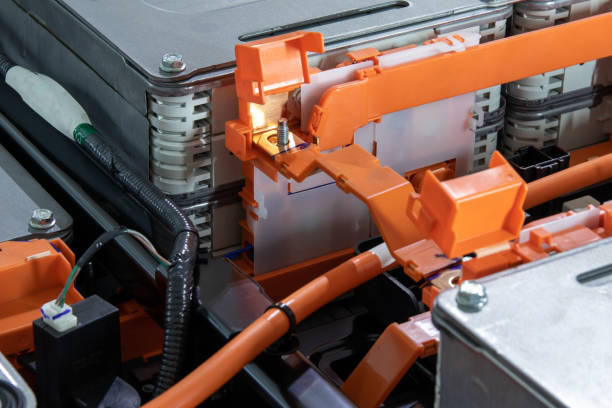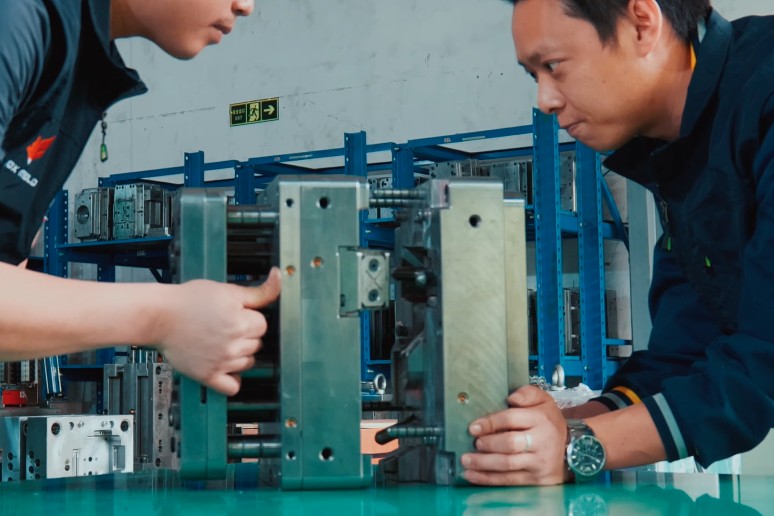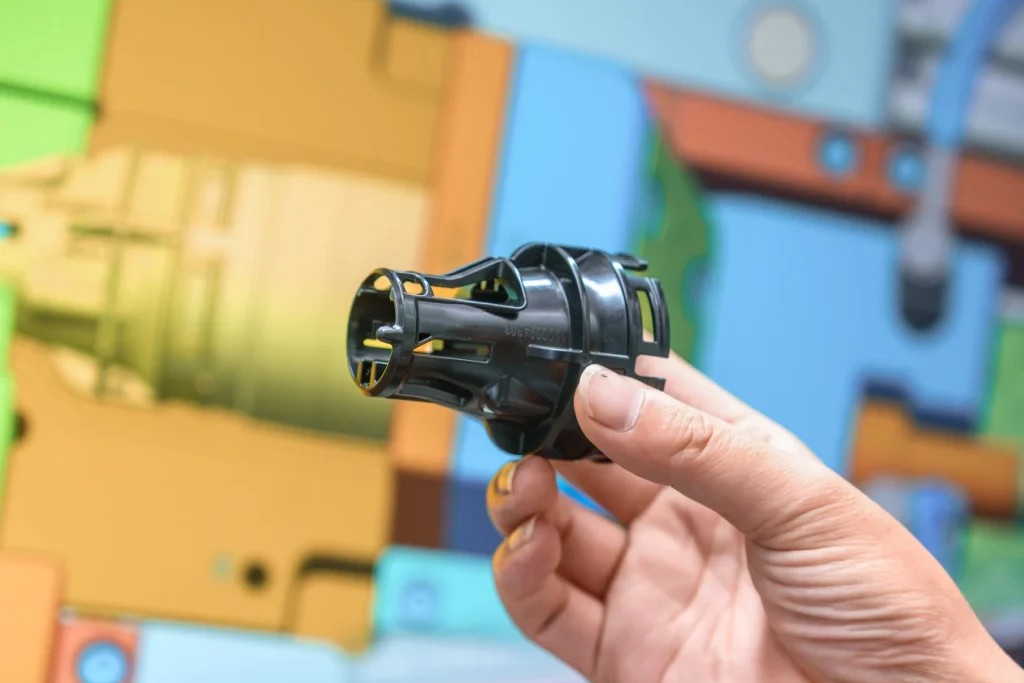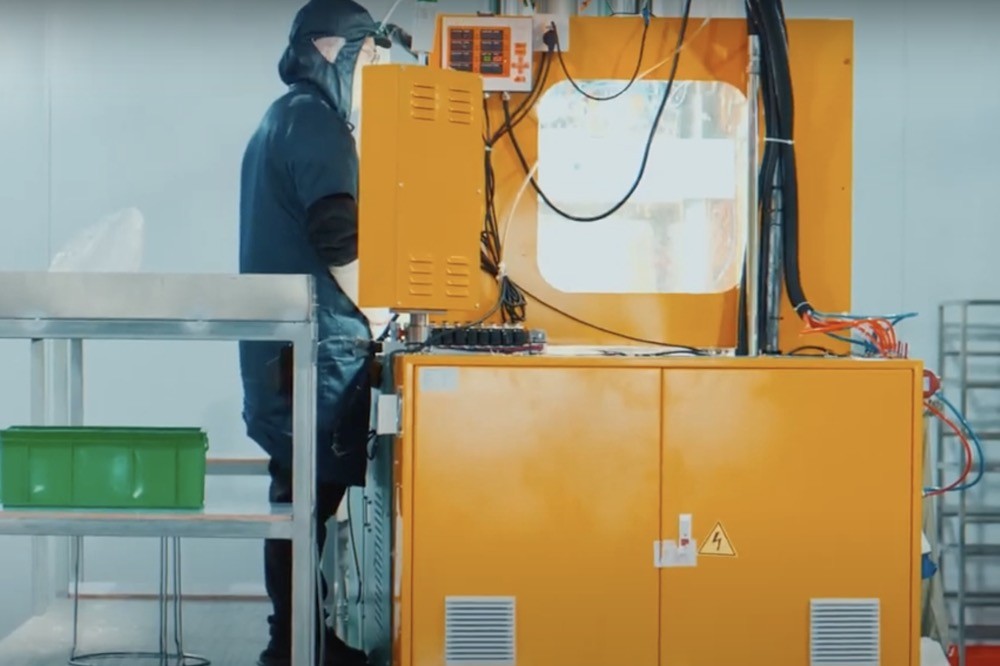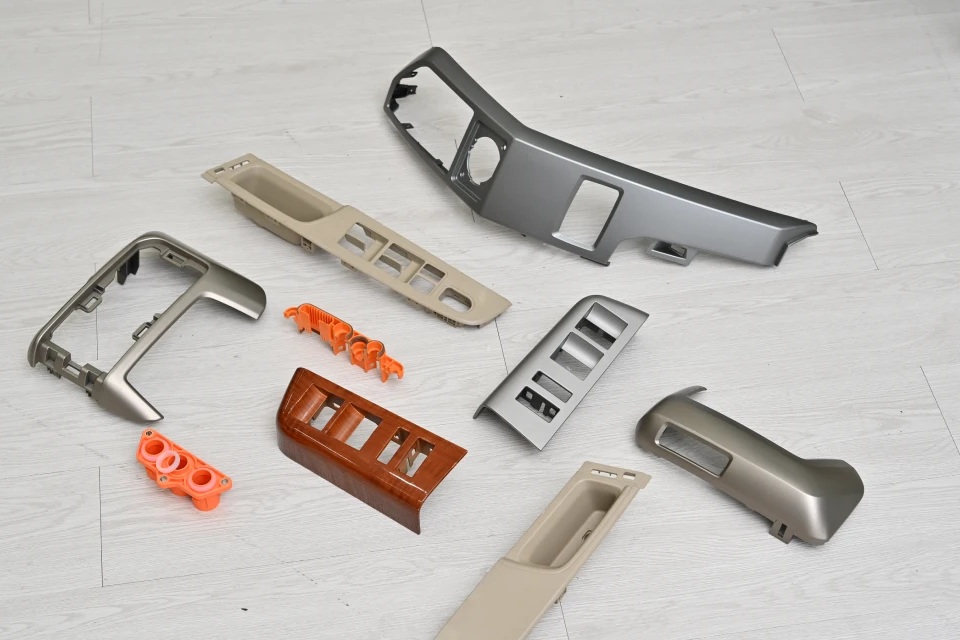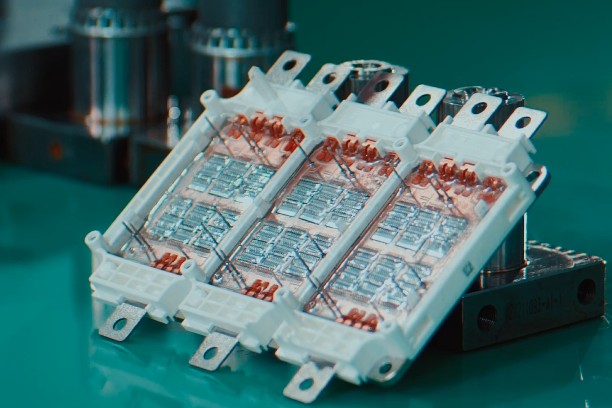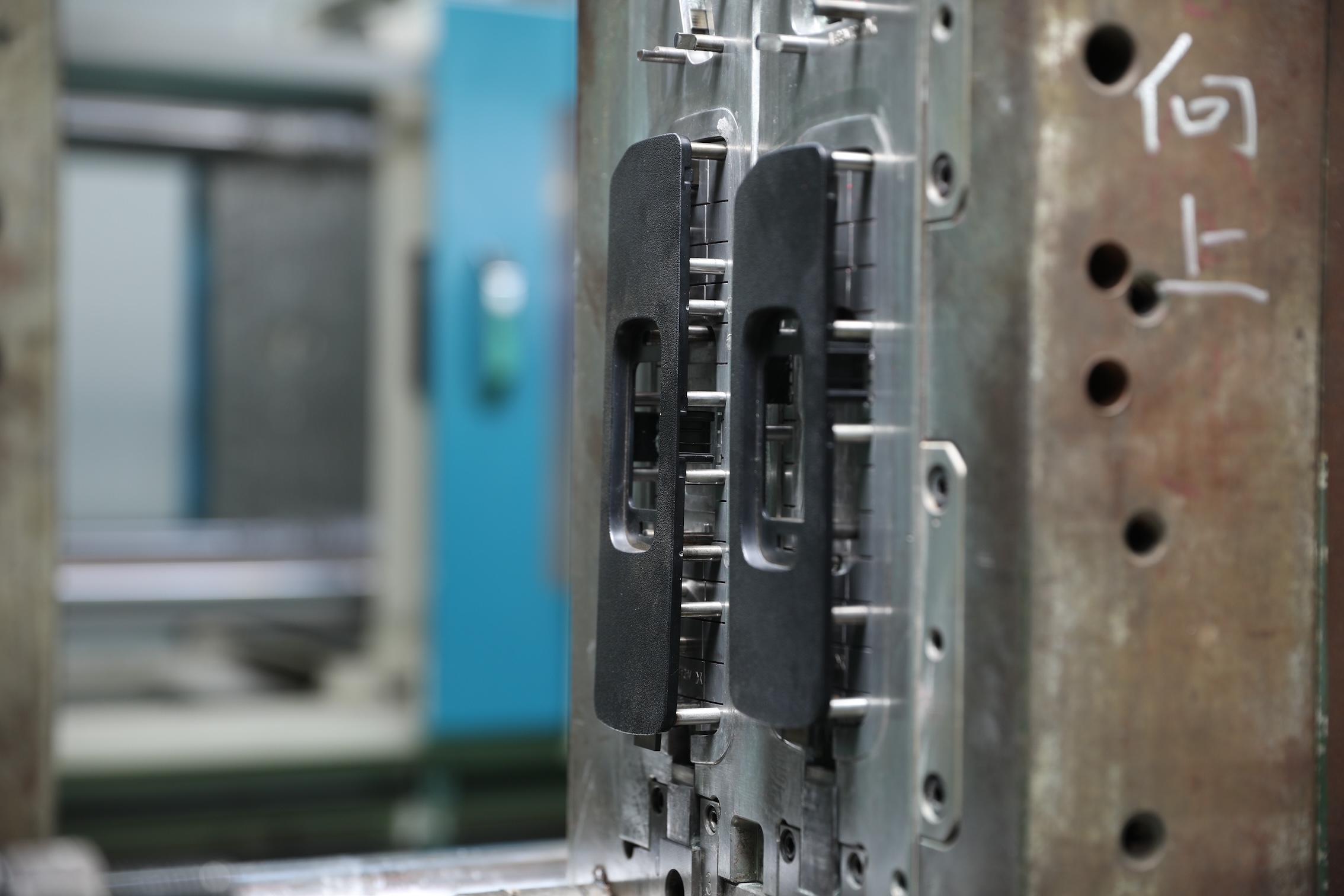So, you have a design ready for your next injection molded project. Now, the next question is “which among the injection molded plastic materials should I go with?” And with the numerous options available, it can be a challenge to choose what would work best with your project.
Thankfully, we’ve streamlined the process for you. This article will go through some of the best types of plastics used in injection molding, along with a quick shopping guide.
Injection Molding Material Comparison
Injection molded plastic materials come in all shapes and sizes, each offering something unique for manufacturers and businesses to take advantage of. To make your selection process simpler, we’ve outlined the types of plastics used in injection molding and highlighted their key features.
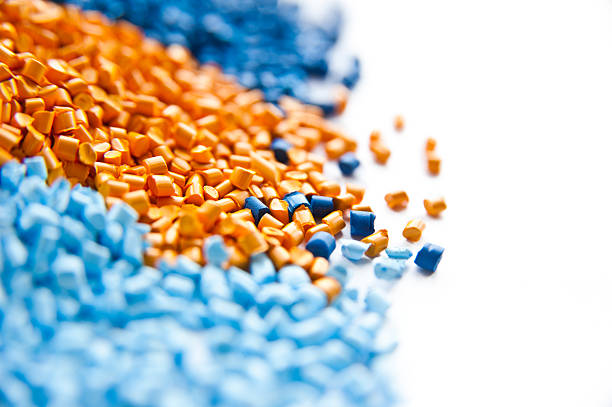
| Material | Properties | Benefits | Price (per kg) | Applications |
| PEEK | Exceptional mechanical capabilitiesHigh performance | High temperature resistanceFlame retardantGood chemical resistanceHigh dimensional stabilityCreep resistanceHydrolysis resistance | $124 | BearingsPiston partsCable insulationParts for high-vacuum setups |
| PLA | High stiffnessStrong but brittleLow melting pointFlexible | BiodegradableExcellent printabilityLow warpingChemical resistanceGreat aesthetics | $4 to $6 | Medical devicesAutomotive partsDisposable food packaging |
| PPO | StrongStiffGood tensile and flexural strengthDimensional stability | Good electrical insulationWater and steam resistanceFlame retardantChemical resistance | $2.60 to $4.20 | Sensor housingPump impellers, diffusers, and water softener componentsConnectorsUnder-the-hood car componentsFuel system parts |
| PVC | LightweightFlexibleVersatileCan be rigid or flexible, depending on the additives | Excellent chemical resistanceHigh abrasion resistanceElectrical insulationFire retardantAffordableImpact resistance | $0.57 to $1.50 | Pipes for water and sewerageElectric cablesVinyl siding, window frames, and sillsSingle-use containers and tubingFood packaging |
| ABS | StrongRigidDurableLow densityLightweight | Impact resistanceChemical resistantLow shrinkHigh dimensional stabilityGood electrical insulation | $1.83 | Mold for electrical toolsComponent for handheld devices, remote controls, computers, and telephones |
| PC | StrongTransparentMore durable than glassFlexibleLightweight | Low shrinkDimensional stabilityHeat resistanceImpact resistanceGreat with cosmetic finishing | $2 to $5 | LensesMobile phone housingBulletproof glassElectrical componentsMedical devicesLighting components |
| PC-PBT | Higher strength and rigidityResistance to common chemicals | Excellent impact resistanceImproved weatherabilityHigh heat resistanceGood chemical resistanceUV resistanceUL 94 V-0 rating for fire safety | $1.30 to $6 | Interior and exterior automotive componentsHousings and connectors for electronicsMechanical parts and housings for consumer goods |
| PC-ABS | Tough and durableHeat deflectiveMaintains shape and sizeStiff and rigidGood flow | Resistant to high and low temperaturesHigh mechanical strengthGreat impact strengthFlame retardant | $1.30 to $3 | Engine coversFan shroudsElectrical housings and enclosuresParts for various consumer goods |
| PA | Good toughnessLow coefficient of frictionHigh mechanical dampeningSliding properties | High temperature toleranceChemical resistanceWide variety of usesHigh impact strengthFatigue resistance | $1.75 to $2.25 | CombsSpoolsGears and bearingsPump partsUnder-hood componentscameras |
| PE | WaterproofLightweightFlexibleVersatileDurable | Low densityGood electrical insulationCorrosion resistanceHigh chemical inertness | $0.20 to over $1.00 | Water and gas pipesGreenhouse coversChildren’s toysContainersMedical devices |
| HDPE | StrongDurableTranslucentWaterproofNon-toxic | Impact resistantChemical resistantFloats on waterLow dimensional stabilityVersatileMoisture absorption | $0.96 | Outdoor furnitureTote bagsContainersChildren’s toysGas cans |
| LDPE | FlexibleLow densityLightweightHigh toughness at low temperatures | Excellent chemical and corrosion resistanceEasy to mold | $0.96 to $1.90 | Squeeze bottlesFlexible pipes and tubingProtective coveringsElectrical insulation component |
| PS | TransparentRigidLightweight | Good electric insulationOptic clarityEasy to mold and shapeWater resistance | $1.50 to $3 | Plastic utensilsContainersToys for kids |
| PMMA | RigidTransparentLightweightEasily machined and processed | Scratch resistantLow shrink92% light transmissionHigh glossWeather resistanceHigh impact strength | $0.50 to $4 for general injection$1.70-$1.85 for special-grade | Light pipesOptical fibersLensesLight shades |
| PEI | StrongHigh performanceTransparentLow smoke emission | Flame retardantGood chemical resistanceExcellent dimensional stabilityHigh temperature resistanceGood electrical insulation | $40 to $50 | Tableware and catering productsSurgical instrumentsDental toolsEquipment housingInsulatorInterior components for aircraft |
| PSU | TransparentRigidToughHigh strengthBiocompatible | High heat resistanceHydrolytic stabilityHigh mechanical strengthGood chemical resistanceDimensional stabilityHigh creep resistance | $5 to $8 | Sterilization traysValvesConnectors for electrical partsWater filtration membranes |
| HIPS | DurableRigidVersatileLightweightEasy to process | High impact resistanceAdaptable to various finishesGood dimensional stabilityChemical resistanceRecyclable | $0.65 to $1.58 | Packaging traysContainersElectronic housingsChildren’s toysDashboards and trims in vehicles |
| POM | StrongRigidGreat dimensional stabilityVersatileHigh toughness | Good lubricityResistant to hydrocarbonsGood elasticityLow creepHigh fatigue resistanceExcellent wear resistanceChemical resistanceElectrical insulation | $19 | GearsPumps and pump impellersConveyor linksSoap dispensersBlower bladesSwitches, buttons, and knobs |
| PP | LightweightDurableHigh mechanical strengthSemi-crystalline structure | High impact resistanceWear resistantFlexibleResistant to acids and basesFloats in water | $0.40 to $1.20 | Internal or living hingesSnap-over lidsMedical pipette tubing |
| TPU | FlexibilityDurabilityElasticityTransparencyWide hardness range | High abrasion resistanceHigh load capacityHigh impact resistanceChemical and oil resistanceLow temperature performanceVersatility | $1.10 to $1.30 | Soles for footwearProtective cases for electronicsSeals and grips for automotivesTubing and drapes for medical useSports gear and cushionsHoses, wheels, and inflatable products |
| ETPU | High elasticityGood temperature adaptabilityOptical clarityEnergy returnLong-term resilienceDurableFlexibilityLightweight | Shock absorptionTemperature resistanceDeformation resistanceAbrasion resistanceChemical resistanceEasy to form and moldMaintains flexibility at low temperatures | $2.82 to $2.87 | Sports footwearChildren’s mats and safety floorsCar fillingsLightweight tiresPackaging materials |
| PBT | Variable strength depending on fill levelHigh rigidityEasily modifiable with fibersEasily machined | Electrical insulationHeat resistanceImpact resistanceResistance to fuels, oils, fats, and solventsGood creep resistanceDimensional stability | $0.70 to $2.50 for basic grade, up to $6.90 for special grades | Side bearingsGears and camsCoffee makers and toastersNozzles for hair dryersHandles and knobs for electrical appliancesVacuum cleaner components |
| PET | High transparencyLightweightShatter resistantHigh strength and rigidity | Excellent chemical resistanceMechanical strengthImpact resistanceWide temperature toleranceRecyclableElectrical insulation | $1 to $1.68 for virgin material$0.78 to $0.98 for recycled flakes | Food and beverage packagingCosmetic packagingElectrical componentsAutomotive parts |
| PPS | High tensile and flexural strengthHigh purity and crystallinityDimensional stability | Great chemical resistanceHigh temperature resistanceElectrical insulationFlame retardantRadiation resistance | $2.30 to $4.60 | Electrical componentsIntakes, valves, pumps, and sensor components |
| LCP | High mechanical strengthLow melt viscosityStiff | Great flowGood chemical resistanceHigh temperature resistanceLow thermal expansionLow moisture absorption | $5 for basic resinsUp to $1000 for specialized resins | ConnectorsPlugsPCBsSports equipment |
| TPE | DurableHigh elasticityLow compression setLightweightHigh elastic recoveryDynamic | FlexibilityExcellent wear and tear resistanceGood electrical insulationEasy to processGood dimensional stabilityTemperature resistanceShock absorptionRecyclable | $1.50 to $5.50 | Mobile phone casesFlexible shoe solesHelmet paddingHandle gripsPet toysFood container lids |
| TPR | DurableLightweightNon-toxicExcellent elasticityProcessabilityEasily colored | Fatigue resistanceWear resistanceGreat weatheringChemical resistanceVersatilityHigh recyclabilityWide hardness range | $1.50 to $2.40 | Footwear soles and gripsSeals and gaskets for automotivesTubing and stoppersChildren’s toysHandles for various toolsVibration-dampening parts |
| TPV | Thermostatic processabilityElasticityLightweightSoftDurable | Excellent flexibilityWeathering and ozone resistanceHigh temperature performanceLow compression setGood abrasionFatigue resistanceRecyclable | $3 to $6 | Weather seals and air ductsWindow sealsExpansion jointsParts for household appliancesIndustrial hoses and gasketsElectrical cable insulation |
The Most Common Injection Molded Plastics
Polyether Ether Ketone (PEEK)
PEEK is a high-performance plastic with excellent strength, stiffness, and chemical resistance that makes it a great choice for parts that require high demands. It has a reliable track record for performing well in various industries, ranging from aerospace and electronics to food and beverage processing.
Polylactic Acid (PLA)
Sourced from renewable materials like corn and sugarcane, PLA offers an eco-friendly alternative to traditional plastic resins. It is a strong yet brittle ecoplastic with excellent printability and low thermal shrinkage. Products made from this material are biodegradable, though they may need industrial composting to be fully processed.
Polyphenylene Oxide (PPO)
PPO is used for various applications due to its high temperature resistance and electrical insulation capabilities. It is typically mixed with other materials like PS or HIPS to create a modified blend with enhanced mechanical properties for a cost-effective plastic material.
Polyvinyl Chloride (PVC)
A versatile and durable plastic material, PVC is seen as the main material for various products in construction, electronics, and food packaging. Along with its high chemical and impact resistance, its high chlorine content gives it fire-retardant properties, further improving its usability.
Acrylonitrile Butadiene Styrene (ABS)
ABS is an amorphous polymer consisting of three monomers and is the preferred material for parts that require high physical properties. Its various properties place ABS in the middle of standard resins and engineering resins, making it a reliable material at an affordable price.
Polycarbonate (PC)
Known for its transparency and exceptional impact resistance, Polycarbonate or PC is typically used as a replacement for glass as a material for parts and product manufacturing. The material also allows light to pass through and has resistance to greases, oils, ketones, aromatic hydrocarbons, and diluted acids.
PC-PBT (Polycarbonate-Polybutylene Terephthalate)
A combination of PC and PBT, this plastic retains the overall properties of PC while boosting other features to make it a unique material. In particular, it now has improved weatherability, UV resistance, and heat resistance, with the material now capable of meeting UL 94 V-0 flammability requirements.
PC-ABS (Polycarbonate-Acrylonitrile Butadiene Styrene)
PC-ABS is a fusion of both worlds – the temperature resistance and durability of PC and the flexibility of ABS. The improved impact resistance and ease of processing this material provide make it ideal for products with high requirements, especially in the automotive, consumer electronics, and consumer goods sectors.
Nylon Polyamide (PA)
Strength, toughness, and wear resistance are what characterize nylon polyamide or PA, as it is commonly used in diverse applications for various industries. Additionally, the material is easily modifiable, creating different polymers with specific characteristics that fit certain products.
Polyethylene (PE)
PE is a lightweight and durable plastic material commonly used in plastic injection molding due to its diverse properties and low material cost. It’s also the base component for other subtypes that are used for specific applications.
High-Density Polyethylene (HDPE)
The HDPE copies the base properties of PE while enhancing its density, giving it high tensile strength, toughness, and good resistance to most chemicals. It’s the preferred material for projects that require high impact resistance and weather resistance, like outdoor playgrounds or piping.
Low-Density Polyethylene (LDPE)
A variant of PE plastic, LDPE focuses on flexibility and versatility over strength and toughness while retaining the key features of PE. The loose structure of this material’s polymer chains allows for the plastic to be flexible and easy to process.
Polystyrene (PS)
Polystyrene plastic is an affordable plastic material for injection molding and is sought for its transparency and rigidity. While naturally transparent, color can be added to enhance its visual appeal, making it applicable to various industry demands.
Poly (Methyl Methacrylate) (PMMA) / Acrylic
Also called acrylic plastic, PMMA is a thermoplastic with great optical clarity, surface hardness, and weatherability, making it a common material for outdoor and optical products. This lightweight material’s transparency allows 92% of light to pass through and has a glass-like finish.
Polyetherimide (PEI) (Ultem)
Categorized as an amorphous thermoplastic, polyetherimide or PEI can be easily shaped and retains its form even in high temperatures. Key features of PEI are its high temperature resistance, flame retardation, and hydrolysis resistance, making it a great material for food processing and medical applications.
Polysulfone (PSU)
PSU is a high-performance plastic material with excellent heat resistance, mechanical strength, and hydrolytic stability, allowing it to function in high operating temperatures. The amorphous structure of this material gives it a transparent finish, though some types can be translucent with a light brown or yellowish tone.
High Impact Polystyrene (HIPS)
A low-cost, highly reliable plastic material, HIPS is created through a blend of polystyrene with a rubber phase, resulting in an easy-to-form plastic. It offers great impact resistance and durability and adapts well to various finishes, enhancing its aesthetic appeal.
Polyoxymethylene (POM) / Acetal / Polyformaldehyde / Polyacetal
POM combines high mechanical strength and excellent dimensional stability in one package, offering a wide range of injection molded plastic solutions to various industries. Its low friction, good chemical resistance, and low moisture absorption allow for parts made with the material to withstand long operations with minimal fatigue.
Polypropylene (PP)
For low-density, high tensile strength plastic material, PP is the one to go with. Along with being lightweight and having low moisture absorption, it has the lowest density amongst all commercial plastics in the market, while retaining good strength and chemical resistance.
Thermoplastic Polyurethane (TPU)
TPU seamlessly combines flexibility, elasticity, and durability in one material, making it a versatile plastic material for various industries to use. Although naturally transparent, it can be modified with diverse colors, enhancing its aesthetics while offering great performance.
Engineered Thermoplastic Polyurethane (ETPU)
A variation of TPU, ETPU is characterized by its extremely high elasticity and energy return, making it ideal as a cushion for different products. Its closed-cell foam structure also helps it absorb and dissipate impact, while its abrasion and cut resistance extends the lifespan of final products made from ETPU.
Polybutylene Terephthalate (PBT)
As a semi-crystalline thermoplastic polyester, PBT is known for having exceptional mechanical strength, heat resistance of up to 150°C, and tensile strength that handles stress from repeated use. It also has good frictional and wear resistance, further elevating the durability of this material.
Polyethylene Terephthalate (PET)
PET is a non-reactive and non-biodegradable plastic material that has thermal resistance, high tensile strength, and is typically clear when in a relaxed state. It can also withstand UV rays, natural elements, and microbial attacks, making it the preferred material for food packaging and beverage bottles.
Polyphenylene Sulfide (PPS)
PPS exhibits high resistance to high temperatures and chemicals while having excellent dimensional stability and mechanical strength. It also has great insulation and flame-retardant properties, while maintaining high purity and crystallinity. PPS can also be reinforced with glass and carbon fiber to enhance its properties.
Liquid-crystal Polymer (LCP)
LCP’s molecular structure creates a unique property profile, balancing high thermal stability and mechanical strength with chemical and flame resistance. The material is a great choice for making thin-walled parts and is typically used in the electronics and medical fields, where small, flat components are desired.
Thermoplastic Elastomer (TPE)
TPE combines the properties of rubber and plastic, creating a highly flexible and elastic material with enhanced durability and wear resistance. It also has a soft-touch feel, making it great for consumer goods and food packaging applications.
Thermoplastic Rubber (TPR)
Having a close resemblance to rubber, TPR exhibits great elasticity and resilience, along with resistance to various chemicals and elements. Its versatility and durability make it ideal for making a wide range of components, while its non-toxic nature makes it perfect for food-grade plastic products.
Thermoplastic Vulcanizates (TPV)
TPV exhibits similar properties to rubber, thus having excellent elasticity, flexibility, and durability. It also greatly resists weathering, UV light, ozone, and various chemicals, making it the preferred material for outdoor products.
How to Choose the Right Material for Your Injection Molding Project
Selecting the material for your injection molding project takes more than picking one from the list. Here are some key considerations one must factor in to maximize your project.
Performance Requirements
First, determine the properties the material must have to create the injection molded product. Remember that not all materials have the same properties, with some more flexible than others and some handling higher temperatures better.
You also have to consider what chemicals would come in contact with the product and choose materials that can resist them as best as possible. For instance, some materials discolor when exposed to UV light, while others resist it well.
Regulatory Compliance
Next, factor in whether there are certain regulations that the end product must meet. Products used in food processing, food packaging, and pharmaceuticals, for example, need to meet FDA standards for use. For cases like these, you’ll need to use plastic materials that are non-toxic and food-grade, and better if they can resist chemicals and odors from sticking.
Another such case is the automotive industry, which follows the strict regulations set by the IATF. Automotive components must meet their standards to avoid penalties or other setbacks.
Moldability
Third on the list is the moldability of the material, specifically if they meet the specific injection molding process you’re going with. Some materials have higher shrinkage rates than others, while some may require additional modifications to achieve the desired output.
Material Cost
Last, but not least, is the material cost. Some of the best plastic materials can be expensive, so it can help to consider more affordable alternatives. Additionally, factor in the availability of the material, as it can add to the overall expense.
Fox Mold’s Injection Molding Material Selection
Serving global brands for 13 years and counting, Fox Mold is the leading manufacturer of injection molded products in the market. We offer end-to-end support for your injection molded project, from material selection and on-demand manufacturing to full design customization and rapid prototyping.
Moreover, we’re never short of top-quality raw materials for all your injection molded manufacturing needs. Backed by a solid supply chain, we have access to a diverse range of materials from the best suppliers in the industry. We can also help you source specialized materials to bring your project to reality.
Wide Material Selection
From thermoplastics to elastomers, we maintain an extensive inventory of each type of material and are ready to utilize them for your project.
Specialty Blends
To enhance the properties of the materials, we can fill them with additives depending on your project requirements.
Competitive Prices
Along with the best materials, we also source them directly from well-vetted suppliers, ensuring the best price for each purchase.
Plastic Versatility
Rely on the expertise of our designers and engineers to provide the best solutions for your project by focusing on the best parts of each material.
Recyclable Materials
We also maximize the materials by recycling them without degradation, maintaining quality while reducing extra costs.
Time to Shop for Your Injection Molded Plastic Materials
Selecting the right material for your next injection molding project can be daunting, but it should never be intimidating. Simply remember that each material has its set of properties and match it with your project needs, and choosing the material will seamlessly fall into place.And when it comes to a manufacturer to handle your next project, Fox Mold is here to help. We specialize in plastic injection molding and carry a large inventory of various materials for any project requirement. Talk to our team today for a free consultation.
